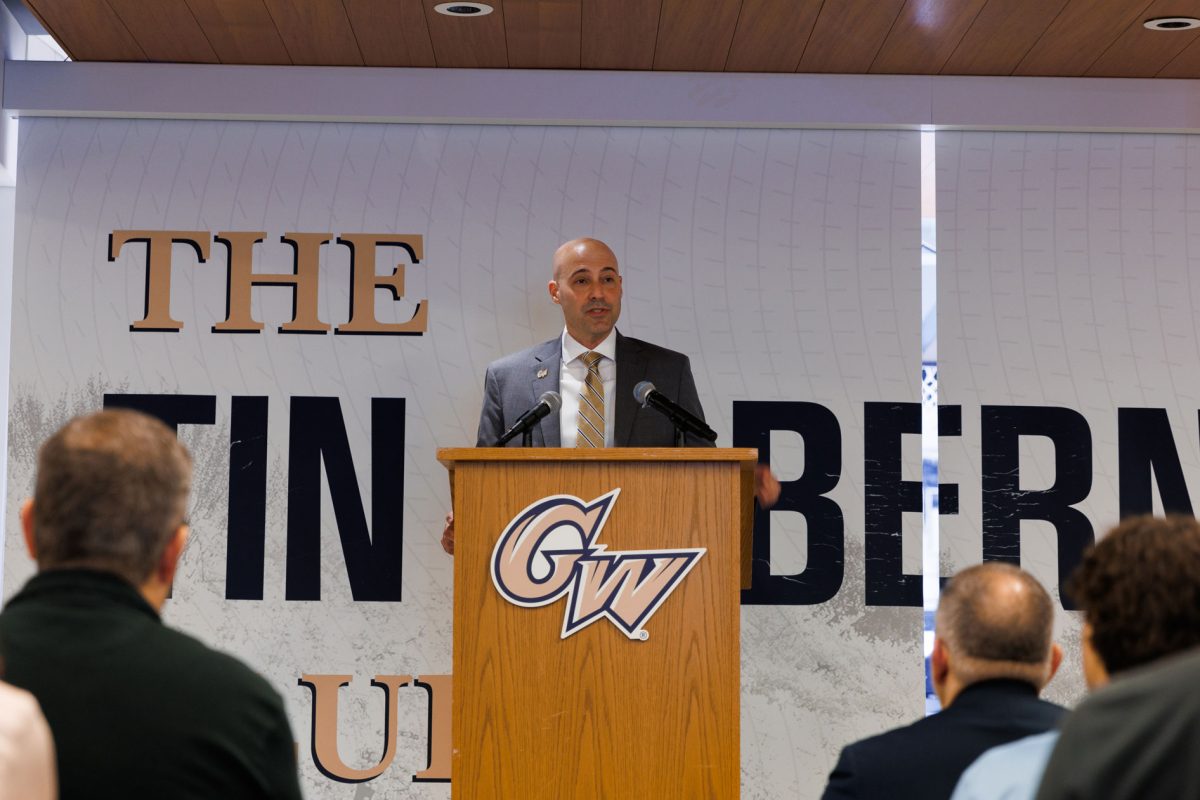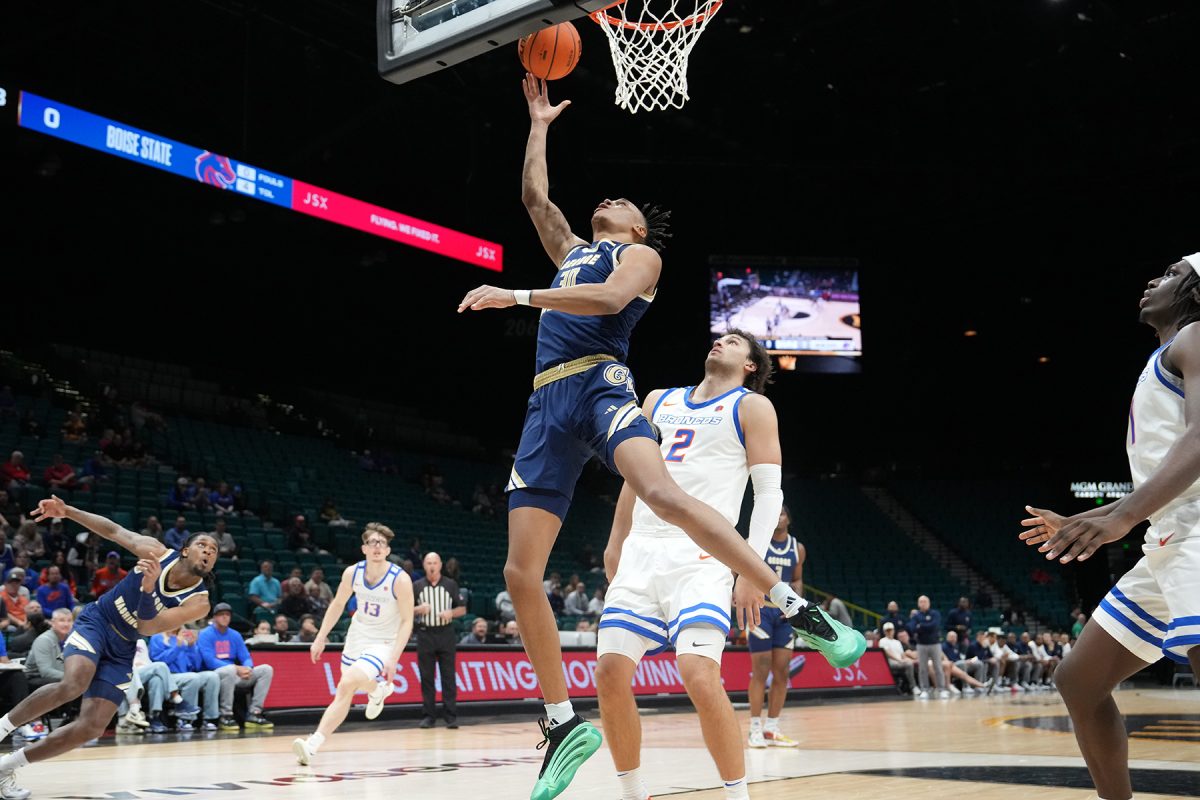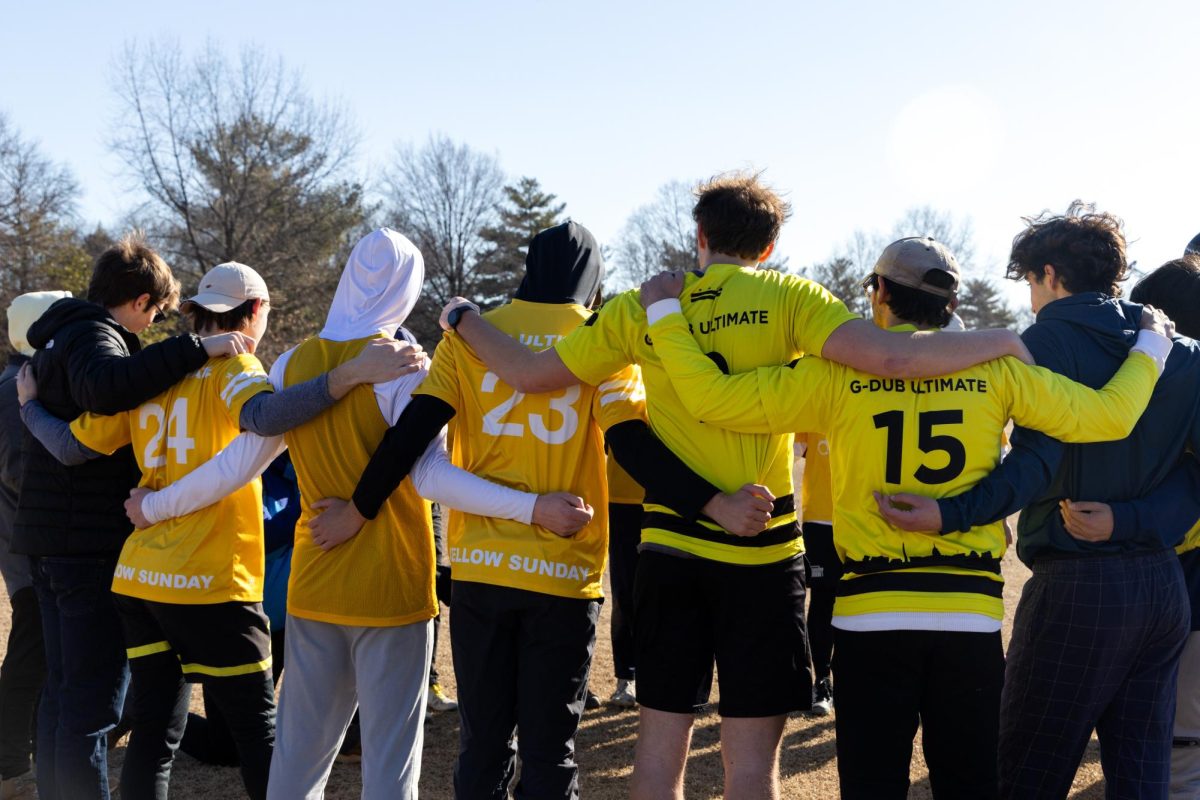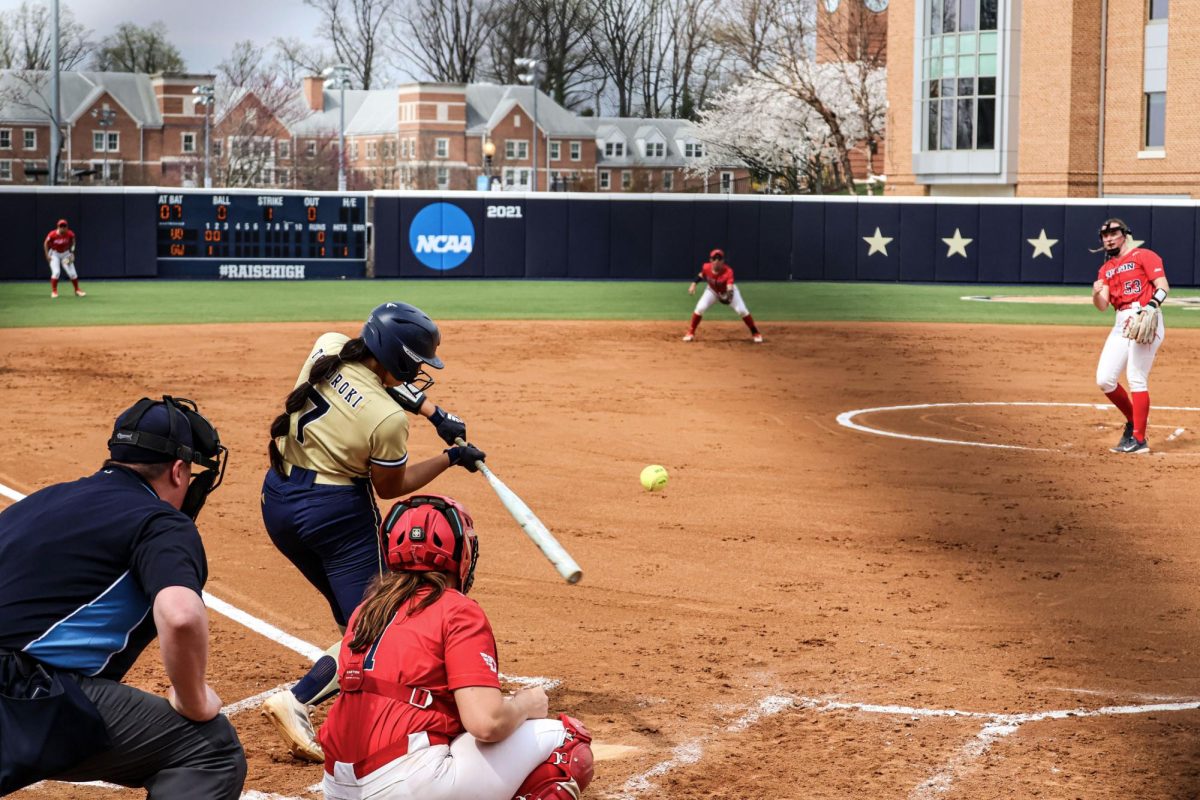Associate Vice President and Director of Athletics Michael Lipitz laid out his vision for athletics to build community, amplify school pride and lead student athletes to success outside of sports at a press conference Tuesday.
Lipitz, who began the position on Aug. 19, most recently served as the director of intercollegiate athletics for the University of Illinois Chicago after years in the athletic departments of North Carolina State University and the University of Maryland, where he played for the school’s tennis team. He replaced former athletic director Tanya Vogel, who announced in May that she would be departing from her position after six years.
Donors, faculty members and select student-athletes like men’s basketball redshirt sophomore Darren Buchanan Jr. gathered in the Smith Center’s Tin Tabernacle Club on Tuesday to meet Lipitz.
“Our combination of truly world-class education and elite A-10 athletics in the heart of the nation’s capital and one of the world’s truly great global cities, delivers an unrivaled platform for our student-athletes to pursue their dreams,” Lipitz said at the press conference. “Our department also provides an outstanding vehicle to recognize and celebrate the great people and the great work of the entire institution and to amplify the GW brand.”
Lipitz said his time with larger athletic programs like NC State and UMD, two Atlantic Coast Conference schools that have large funding and resources, will be starkly different from GW.
According to data filed with the U.S. Department of Education, GW spent just over $31 million on its athletics program in fiscal year 2023, while UMD spent over $121 million and NC State spent over $118 million on their respective programs.
“The reality is for all of our programs around the country now, we’re all facing the same challenge, which is this evolving landscape,” Lipitz said. “How the schools at the power level attack that to help their programs be competitive is probably going to look different simply because they have more resources.”
Within the past five years, the introduction of the transfer portal and Name, Image and Likeness compensation for student-athletes has introduced new layers of difficulties for departments to manage. The transfer portal, which allows student-athletes to switch schools without having to refrain from competition for a year, forces schools to have to work on recruiting. NIL allows athletes to receive paid endorsements and sponsorships, introduces a new fundraising aspect to college sports, with schools having to ensure that they can provide athletes with competitive financial opportunities.
University President Ellen Granberg introduced Lipitz at the press conference and said his ability to adapt to the changing nature of college sports made him a prime candidate for the position.
“The ability to understand and comprehend the complicated legal and regulatory environment and to focus on ways to make sure that we stay compliant while also being highly competitive, is a real challenge, so I was looking for someone who had the experience, the know-how and the intelligence to be able to navigate and thrive in that kind of highly dynamic atmosphere,” Granberg said.
Lipitz said fundraising and revenue generation will be a priority for the athletic department. He said he will be consistent in working the phones to raise money, speaking directly to donors and potential donors watching his press conference being live streamed on YouTube.
“We cannot achieve all that we are capable of achieving without you,” Lipitz said, addressing donors who have not been active in recent years. “So you will be hearing from me, and when I call your number, be ready to get off the bench and into the game.”
Lipitz added that he plans to be as strong as he can with NIL, the new “lifeblood” of an athletics program.
“We’re going to do things by the rules,” Lipitz said. “We’re going to color within the lines, but we’re going to be aggressive in terms of generating revenue to support our student-athletes, first and foremost, in turn, to get the best talent to Foggy Bottom so our teams can be successful.”
Lipitz said as a basketball school in a basketball conference, he recognizes that success with the men’s and women’s programs drives financial success for the whole athletic department. The men’s team has not earned a bid to the NCAA tournament since 2014, while the women’s team has not made the tournament since 2018, when they won the A-10 championships.
“Basketball is very much in our DNA, and we embrace the expectation to compete for titles and to play deep into March,” Lipitz said.
At UIC and NC State, Lipitz oversaw the construction and renovation of several stadiums and playing fields, managing projects costing tens of millions of dollars. With GW’s planned Smith Center pool demolition and basketball practice facility construction plans now halted, Lipitz said building new practice facilities remains a priority, although he is only having preliminary discussions.
“This court gets a lot of use,” Lipitz said. “We’ve got men’s and women’s basketball, volleyball, gymnastics and campus and community events all happening in this building. You guys have seen it. So the opportunity to have a consistent schedule working around classes for student-athletes is important.”
He said he hopes to see greater turnout at GW games because George’s Army can lead to improved on-court play. But, he said he recognizes that it falls on the athletic department to create a product that GW community members would want to see.
“First, we obviously have to do our part, have a fun product on the court that’s winning and exciting to come see,” Lipitz said. “At the same time, the game day atmosphere needs to be something that, irrespective of the final score in any game, is something that people want to come out and see, they want to bring their families to, students want to come out to.”
Sandra Koretz and Syd Heise contributed reporting.





